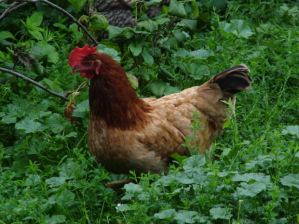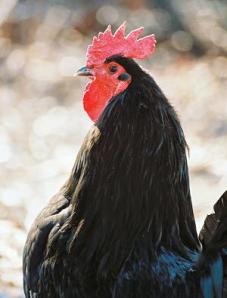
The USDA may allow poultry companies to increase the number of chickens processed per minute. View our list of vegan/vegetarian options that support a humane diet.
The United States Department of Agriculture (USDA) is putting the final touches on a proposal that would allow poultry companies to accelerate poultry processing lines. Translation: the companies can increase the speed at which they can kill animals from 140 to 175 chickens a minute and from 45 to 55 turkeys a minute.
The obvious hazard is to the birds—more will be slaughtered a minute, an hour, a day at these plants. At current “line speeds,” many birds are not dead before they enter tanks of scalding water. They are, in essence, boiled alive. With more rapid line speeds, more chickens and turkeys may die horrific deaths. Ironically, birds who die this way must be discarded. If a bird hasn’t completely bled out prior to being dragged through the scalding water, the bird’s flesh becomes saturated with blood, which can carry pathogens, thereby making the flesh unusable.
There’s another group who will suffer, too—the workers in these factories. Injuries to slaughterhouse workers can be career ending and sometimes life-threatening. Workers are dealing with frightened animals, they are handling sharp objects, walking around on slimy floors, and generally moving faster than any of us can comprehend, all to take the lives of innocent animals.
So, whether a human or a nonhuman animal, when you think about it…killing at any speed is hazardous to one’s health. Chose a vegan/vegetarian diet instead and end the killing.







